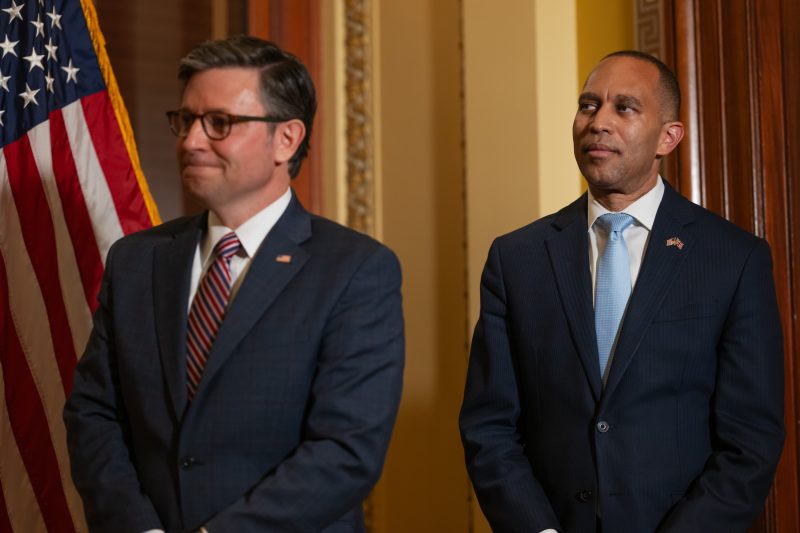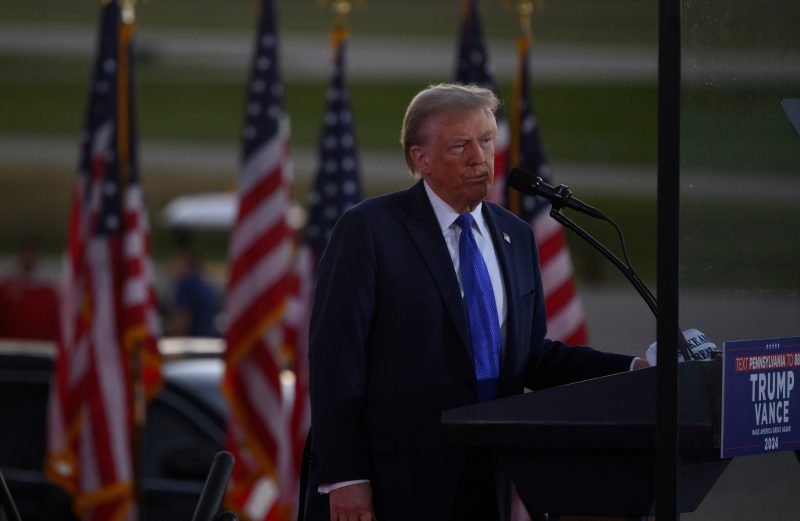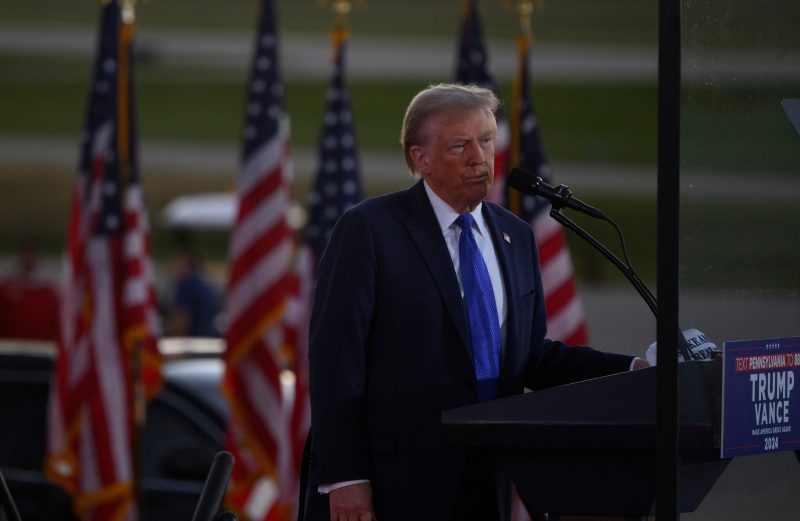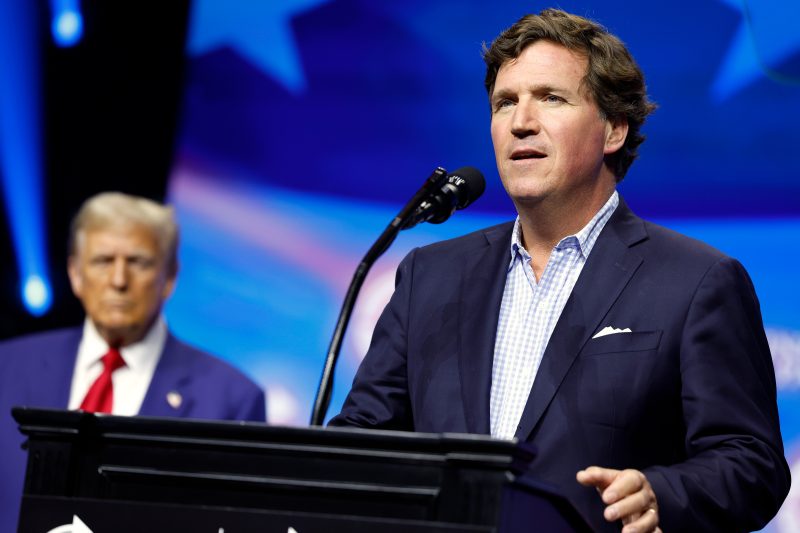
Bipartisan House panel to investigate shooting that injured Donald Trump
A bipartisan House task force will investigate the assassination attempt on Republican presidential candidate Donald Trump, House Speaker Mike Johnson (R-La.) and Minority Leader Hakeem Jeffries (D-N.Y.) announced in a joint statement Tuesday.
“The security failures that allowed an assassination attempt on Donald Trump’s life are shocking,” the lawmakers said in a statement.
The task force of seven Republicans and six Democrats will have subpoena power and “will move quickly to find the facts, ensure accountability, and make certain such failures never happen again,” they said.
Johnson and Jeffries did not name the people who will be on the task force, but Jeffries was not going to sign on unless Johnson signaled that he would appoint lawmakers serious about the task force’s mission, according to three people familiar with the process who spoke on the condition of anonymity because they were not authorized to discuss private conversations.
The shooting during the July 13 rally in Butler, Pa., killed one person, critically injured two others and wounded Trump, who was rushed offstage by Secret Service agents. The suspected gunman, Thomas Matthew Crooks, was killed by law enforcement officials at the scene.
A similar bipartisan effort to probe the attack on the U.S. Capitol on Jan. 6, 2021, by a mob of Trump supporters broke down after then-House Speaker Nancy Pelosi (D-Calif.) appointed two Republicans to join the committee that then-Minority Leader Kevin McCarthy (R-Calif.) opposed.
Prof. Peter Loge, director of the School of Media and Public Affairs at George Washington University, said there is reason to believe this task force may accomplish its stated goals, despite high levels of partisan rancor stalling major legislative efforts on both sides of the aisle.
“I think this could get something done,” Loge told The Washington Post on Tuesday, noting that immediately after the shooting, lawmakers from both parties condemned it and denounced politically motivated violence. “This is an opportunity to remind everyone that we are united in saying this is not normal, this is not okay.”
Loge said he’ll look to see if the members of the task force represent not just both political parties, but also “actual ideological diversity.” He also said he wanted to see if the witnesses who are called to testify worked under both Republican and Democratic administrations, describing them as more likely to be the “smartest, and most qualified, and least obviously political,” experts.
“When something big and scary happens, we try to figure out what it means,” Loge said. “Usually, it’s a lot of different things at once.” How widely and how deeply the task force probes those questions will determine how effective the task force is, he said.
The normalization of political threats and violence in America, the accessibility of guns and the bureaucratic failure to protect presidential candidates may all be contributing factors to the shooting, he said. “If the shooting is about the failure of a person or agency, Congress holds hearings, people get fired, and we move on,” he said.
Marianna Sotomayor contributed to this report.



